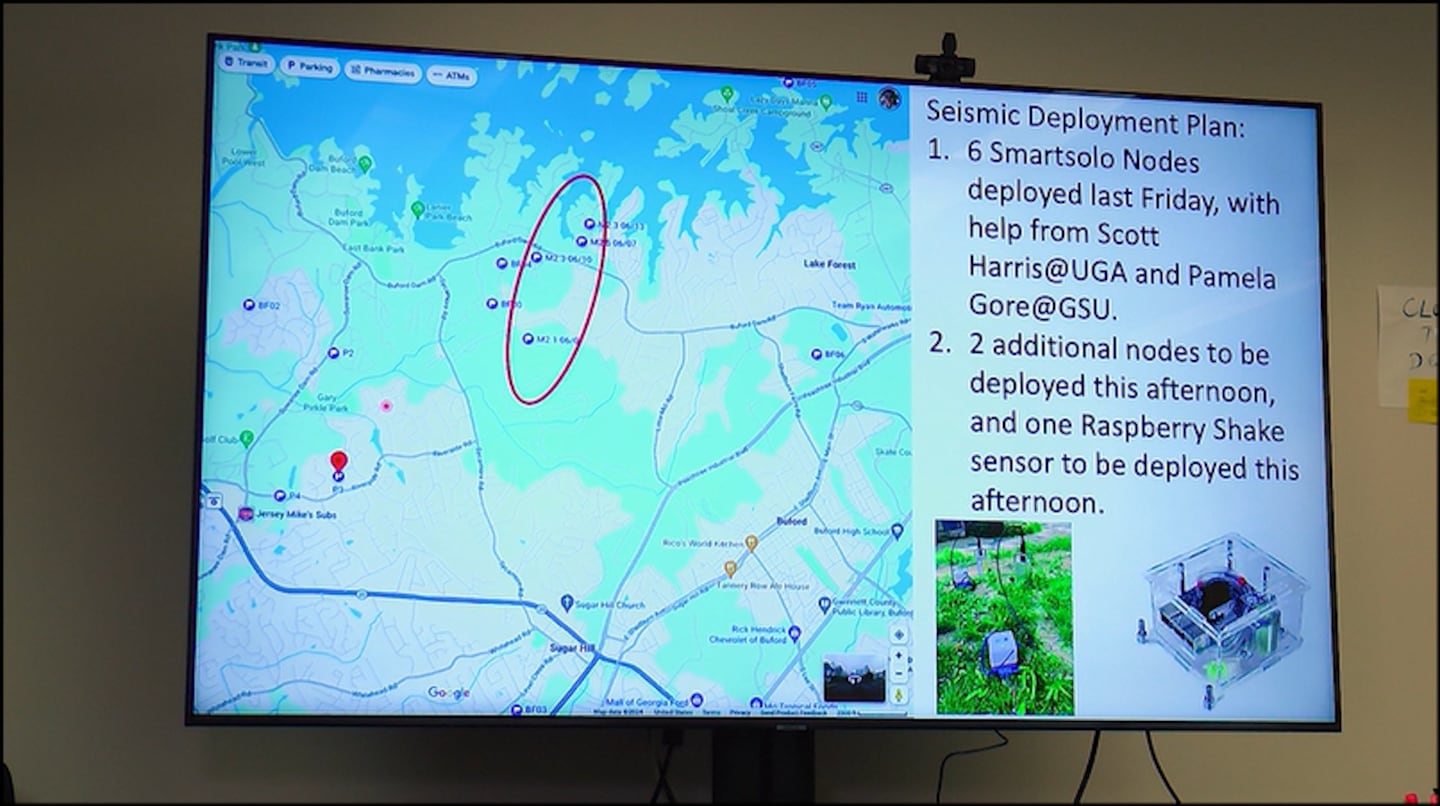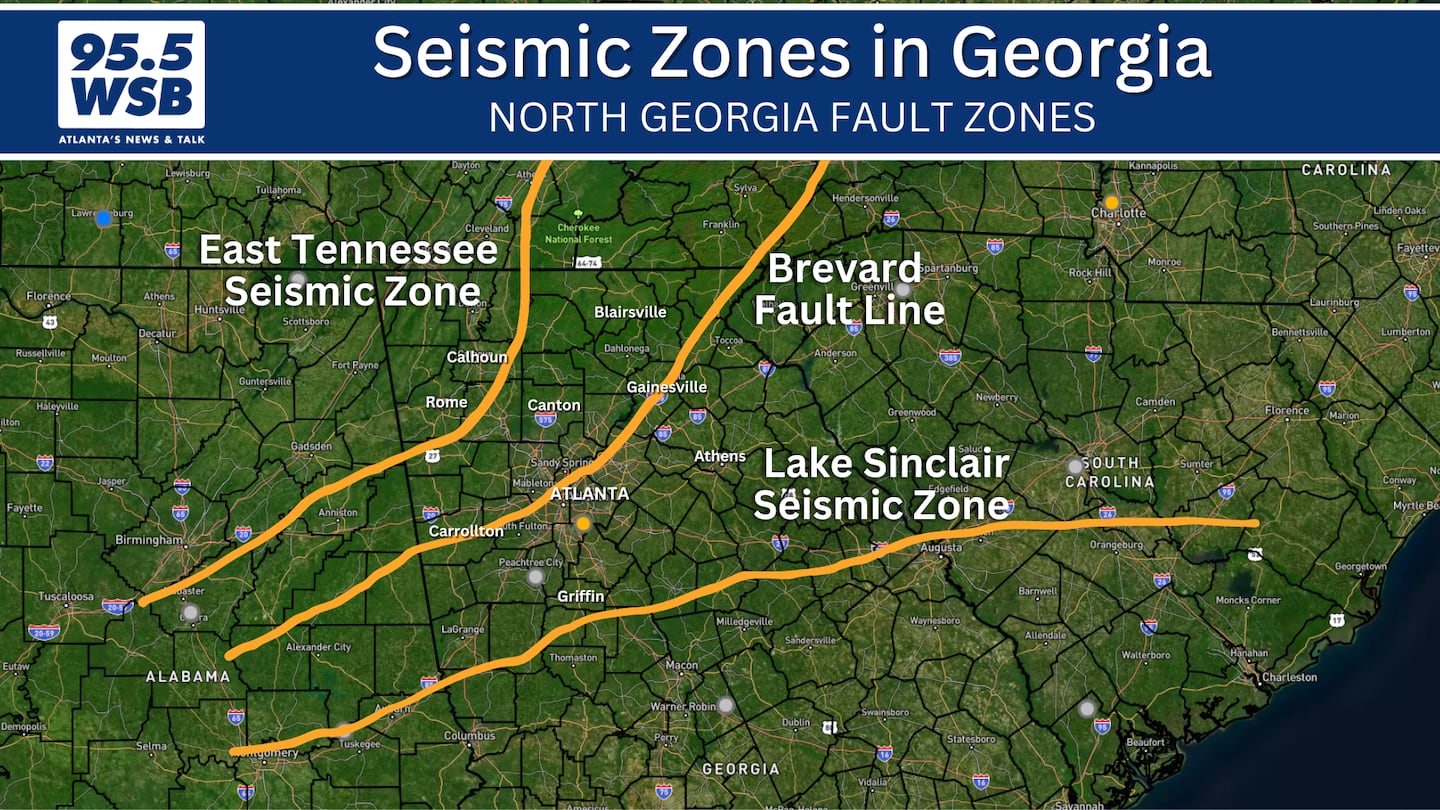Researchers at Georgia Tech are studying the shaking that happened in North Georgia last month, and they are hoping to capture additional data through the course of this summer.
I sat down with Dr. Zhigang Peng, Professor of Geosciences at Georgia Tech, to learn more about their scientific studies throughout Gwinnett and Hall counties this summer.
Q: What caused the shaking earlier in June 2024? Where they earthquakes?
“So far, four earthquakes have been reported [in North Georgia] by the USGS.”
“We are suspecting there are probably quite a few smaller ones happening right now. That is why we are setting up additional sensors to monitor and understand what is going on.”
Q: Where have these earthquakes occurred? Where are you putting the sensors?
“We are setting up sensors right around where the earthquake is happening. The earthquakes, so far, four of them occur near the edge of Lake Lanier.”
“We have set up six of [the sensors], basically set it up so that they are surrounding where the event is.”
Q: A lot of the sensors are southeast of Lake Lanier, near Sugar Hill and Buford. Is there a reason why you put the six sensors exactly where they are?
“The first event occurred -- it was picked up by a station about 100 to 200 km [62 -124 miles], so it was pretty widely felt. However, if you want to better understand the location, especially the depths, then you want a station [sensor] right on top.”
“We put two stations almost right on top of [the recent four events], and we have four stations in the peripheral. The plan is to circle around so that we have good [sensor] coverage.”
“In this case, those nearby stations will hopefully tell us exactly when and especially where it occurred.”
Q: Why is this happening? Does it have anything to do with any fault lines nearby?
“That’s a very good question. It’s safe to say that almost all the earthquakes occur on a fault line, the question is -- which one?”
“Right now, even though the location probably is not super accurate, but you can kind of see that it’s probably lining up almost near a north-south direction.”
“Nearby in the bigger Atlanta region, we have many ancient fault lines -- those are fault lines that were active tens of hundreds of millions of years ago.”
“One of the most famous one is call the Brevard Fault Line, that is very extended and probably used to be an ancient plate boundary.”
“However, we don’t think these [recent] events are occurring on that fault line, because the fault line is almost going kind of diagonal, from northeast to southwest.”
“The current locations seems to suggest that it almost is occurring on what we call a sub-serial or secondary fault line, at certain angles.”
“This is what we are suspecting is what’s happening right now, but of course, one question we couldn’t answer at this point is -- exactly what triggers it? What set it up? Why did it occur [in June 2024]? Why would it occur again in the future?”
“That’s the question, and hopefully by setting up additional sensors, we can help understand again which fault line or what set that sequence up.”
Talk Up a Storm With Me!
Facebook: Christina Edwards WSB
Instagram: ChristinaWSBwx
Twitter: @ChristinaWSBwx
TikTok: @ChristinaEdwards955WSB
©2024 Cox Media Group












